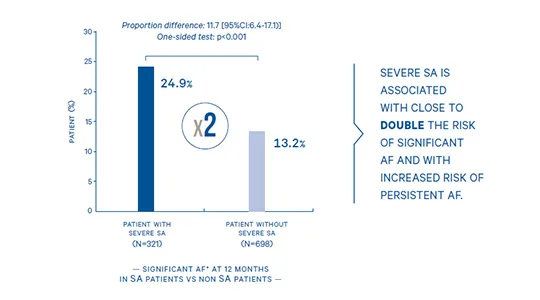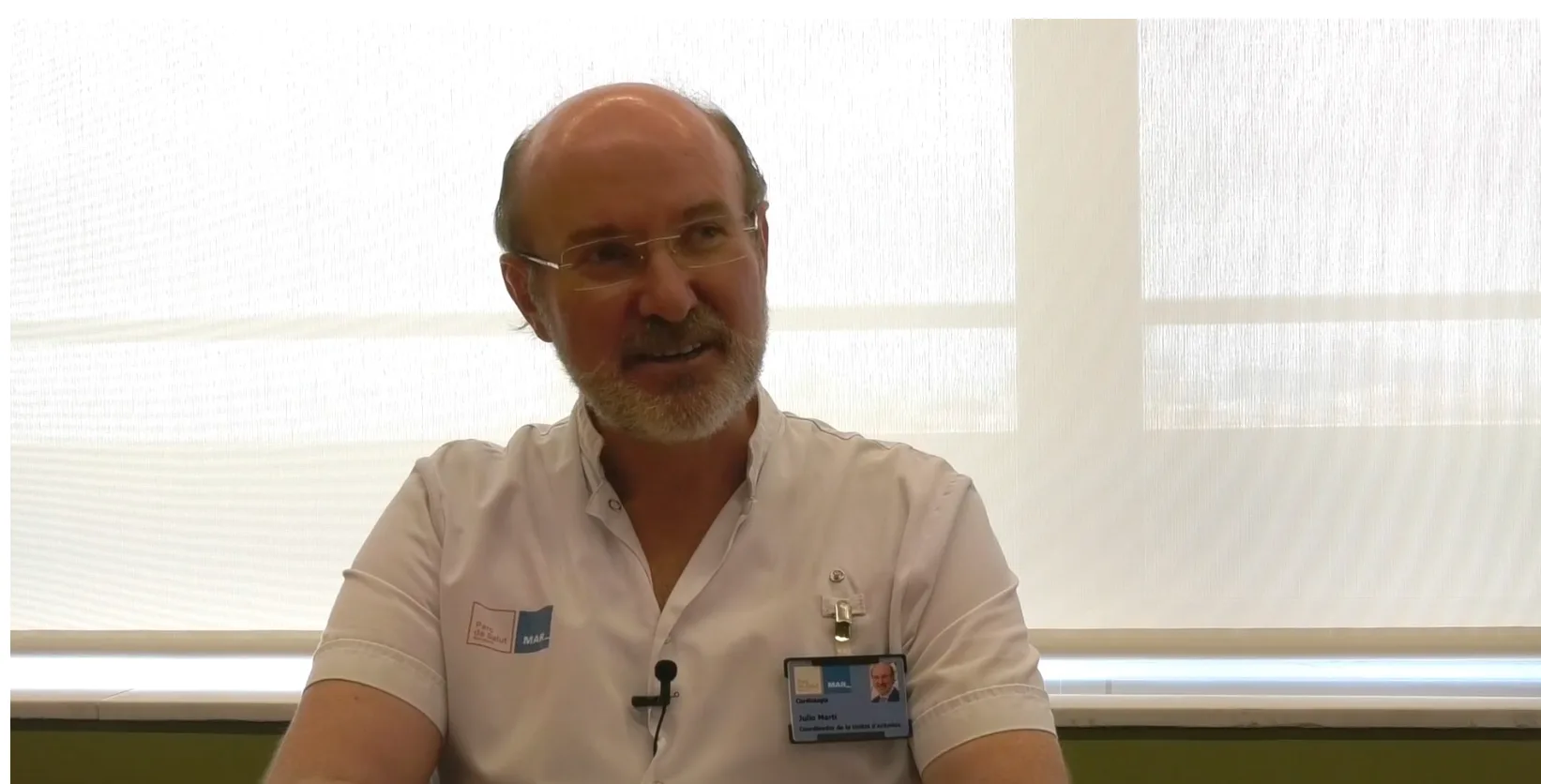SLEEP APNEA + Comorbidità cardiovascolari
= una combinazione pericolosa
La Sleep Apnea severa è spesso associata alle comorbidità cardiovascolari ed ha su queste un impatto negativo:
- 58% di maggior rischio per Scompenso Cardiaco2
- Rischio di fibrillazione atriale 4 volte più alto3
- Maggior resistenza al trattamento farmacologico4
- Più recidive di fibrillazione atriale post ablazione o cardioversione5,6
LA SLEEP APNEA È MOLTO DIFFUSA, MA SOTTODIAGNOSTICATA.7–9
- L’incidenza della Sleep Apnea severa (RDI >20) è stata rilevata pari al 31,1% in una popolazione di pazienti pacemaker non selezionati.9
- Il 50-90% dei pazienti non viene diagnosticato e quindi non curato8

PROTEGGERE I PAZIENTI GRAZIE A SAMTM
SAM è uno strumento di Monitoraggio della Sleep Apnea dalle caratteristiche uniche ed è stato validato confrontandolo con l’Indice di Apnea Ipopnea (AHI) polisonnografico, gold standard diagnostico di riferimento.1
SAM si è rivelato un supporto di screening affidabile, con elevata specificità (85%) e sensibilità (89%).
Follow-up rapido ed efficiente.
SAM riconosce e documenta la Sleep Apnea severa consentendo un follow-up rapido ed efficiente per gestire questa patologia pericolosa.1

